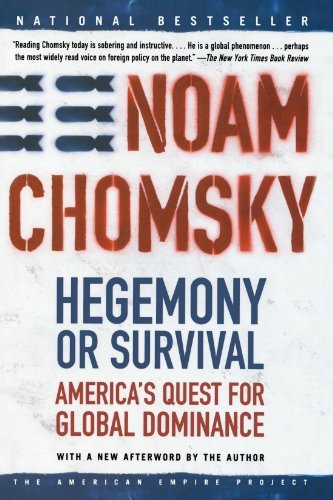
American Power and the New Mandarins: Historical and Political Essays
Book Description
In a world where the powerful shape narratives to justify their actions, revolutionary thinker Noam Chomsky exposes the hidden mechanics of American foreign policy. Through razor-sharp essays, he dissects the moral complexities and political realities of a nation grappling with its own imperial ambitions. With each page, the stakes rise as Chomsky challenges the status quo, illuminating the voices of dissent often silenced by authority. This collection ignites a fiery discourse on the ethics of power, urging a reevaluation of complicity and conscience. Are we mere spectators in a grand tale, or can we rewrite our role in history?
Quick Book Summary
In "American Power and the New Mandarins," Noam Chomsky presents a scathing critique of U.S. foreign policy during the Vietnam War era, arguing that American intervention abroad is driven not by ideals, but by economic, strategic, and political self-interest. Drawing on a series of essays, Chomsky explores how intellectuals—whom he labels the "new mandarins"—help to legitimize and sustain systems of power, often defending deeply questionable government actions. He scrutinizes the moral responsibility of both citizens and the technocratic elite, urging active dissent and engagement. The book combines historical analysis, philosophical reflection, and political critique, challenging readers to question mainstream narratives and to consider their own role in sustaining or opposing unjust structures of authority.
Summary of Key Ideas
Table of Contents
The Role of Intellectuals in Power Structures
Noam Chomsky’s essays confront the influential role played by intellectuals—the so-called "new mandarins"—in shaping and supporting U.S. foreign policy. Drawing parallels to historical mandarins of imperial China, Chomsky asserts that academics and technocrats use their expertise to rationalize and administer state power. He reveals a system where learned elites often justify morally dubious policies, particularly during the Vietnam War, and questions whether technical knowledge can truly be neutral given its instrumental use in perpetuating violence and oppression.
Moral Responsibility and Complicity in Policy
Central to the book is an exploration of moral responsibility, both at the level of individual conscience and broader societal complicity. Chomsky insists that citizens bear responsibility for the actions of their government, especially in democratic societies. He lays bare how rationalization and detachment enable participation in systemic wrongdoing. Only through active critical engagement, he argues, can individuals resist the slide into moral complacency. This call to conscience extends beyond policy elites to ordinary people, challenging everyone to scrutinize their own roles.
Dissecting American Interventionism
Chomsky’s analysis of American interventionism focuses primarily on U.S. actions in Vietnam but extends to a broader critique of Cold War geopolitics. He exposes the gap between the stated ideals of democracy and humanitarianism and the underlying motives of power, resource control, and ideological dominance. Through detailed historical examples, he underlines how policies promoted as benevolent are often destructive, resulting in vast human suffering and destabilization—a reality often hidden from public view by official narratives.
Challenging Official Narratives and Dissent
The book strongly emphasizes the importance of challenging prevailing narratives and the necessity of dissent. Chomsky deconstructs media, academic, and governmental discourse that serve to sanitize or obscure the realities of American power. By documenting the suppression of dissenting voices and the propaganda that accompanies foreign interventions, he advocates for intellectual honesty and the revitalization of democratic debate. Dissent, for Chomsky, is both a moral obligation and a cornerstone of a healthy society.
Ethics, Conscience, and Historical Memory
Finally, Chomsky urges a reevaluation of national conscience and historical memory. He warns against forgetting or justifying past wrongs, insisting that honest reckoning is essential for genuine progress. The legacy of "American Power and the New Mandarins" endures as a call to question authority, reconsider one’s participation in structures of power, and to embrace the difficult but necessary path of ethical engagement with history and politics.
Download This Summary
Get a free PDF of this summary instantly — no email required.





